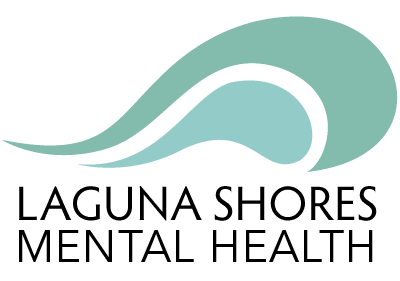Residential Mental Health Treatment
Mental health plays a vital role in our overall well-being, and there are instances when we may require assistance to maintain it effectively. Mental disorders can significantly hinder the ability to foster positive relationships, achieve success in professional environments, and fulfill personal aspirations.
If a mental health condition is adversely affecting your life, it’s crucial to ask for help rather than attempting to cope with the symptoms alone. We understand this can be challenging, but access to necessary care and resources is available.
At Laguna Shores Mental Health located in Laguna Niguel, California, our inpatient mental health treatment program assists individuals grappling with various mental health conditions, including anxiety disorders, major depressive disorder (Depression), bipolar disorder, post-traumatic stress disorder (PTSD), and more.
If you find that your mental health is deteriorating, and require assistance in managing distressing symptoms and learning effective ways to cope, the skilled medical professionals and therapists at our Orange County rehab center are here for support.
Inpatient mental health treatment refers to a form of care in which individuals reside at a specialized facility for a designated duration to obtain comprehensive support. Throughout this period, patients benefit from round-the-clock assistance provided by mental health professionals.
Residential treatment represents the highest level of care available. Unlike during outpatient treatment, people receiving inpatient care are unable to accommodate therapy sessions, group meetings, and various activities within their usual daily routine and schedule. As people in recovery have unique needs and circumstances, treatment is not a one-size-fits-all approach. What may work for someone else may not work for you and vice versa.
During inpatient treatment, individuals benefit from consistent access to qualified staff members, guaranteeing that they receive the appropriate level of support. Engaging in residential treatment can also assist in enhancing one’s coping mechanisms, mending strained family relationships, and addressing other challenges.

Who is a Candidate for
Residential Treatment for Mental Health?
Inpatient mental health treatment is common for individuals facing significant mental health challenges. Inpatient treatment is appropriate for a diverse range of mental disorders including:
- Generalized anxiety disorder (GAD), social anxiety disorder, and other related conditions
- Depression
- Post-traumatic stress disorder (PTSD)
- Personality disorders
- Bipolar disorder (bipolar I, bipolar II, or cyclothymia)
- Obsessive-compulsive disorder (OCD)
Signs You Need
Inpatient Mental Health Treatment
If you are experiencing suicidal thoughts, self-harm tendencies, episodes of mania, or significant depression, it may be advisable to consider inpatient treatment. Indicators that inpatient care may be necessary. You may need inpatient mental health treatment if any of the following apply:
- Other treatments have failed.
- You have difficulty performing daily tasks and carrying out routines such as going to work and school.
- You’re a risk to your safety or the safety of others.
- You engage in self-harm or have suicidal thoughts.
- You have a mental health condition paired with a substance use disorder. This is known as a co-occurring disorder or dual diagnosis.
- You experience paranoia, hallucinations, delusions, or psychotic episodes.
Upon completion of inpatient treatment, it is crucial to maintain ongoing support and care. Recovery is an enduring journey; however, with appropriate assistance and support, achieving a fulfilling and healthy life is attainable.

What to Expect During
Residential Mental Health Treatment
It’s essential to have a clear understanding of what to anticipate when being admitted into a residential treatment program. Upon your arrival, you will engage with the admissions team to review your medical and mental health history during the intake process. This assessment enables treatment providers to evaluate the severity of your symptoms and identify the most effective treatment strategies.
Admission to a residential mental health treatment program involves reviewing medical history to assess symptoms and develop a personalized treatment plan, that includes medications, therapy, and activities to support recovery.
Through monitoring progress and providing continuous support, daily schedules help individuals have structure, maintain stability, stay motivated, control impulses and cravings, and boost self-esteem through therapy sessions, support meetings, nutritious meals, physical exercise, and self-reflection.
Inpatient Mental Health Treatment
FAQs
One of the primary advantages of inpatient mental health treatment is the opportunity to concentrate solely on recovery, free from distractions and circumstances that may exacerbate your condition. With access to necessary services, the likelihood of relapse diminishes. Other benefits include:
- Intensive treatment
- Structured environment
- 24/7 support
- Peer support
- Access to various therapies
- Crisis stabilization
- Reduced access to triggers
- Discharge planning
Our rehab center in Orange County ensures a safe and secure atmosphere, allowing residents to feel at ease as they address their mental health challenges.
Mental health disorders share numerous common symptoms; however, each individual is distinct. A comprehensive evaluation will be conducted to ascertain the specific type of care required for your situation. The duration of your stay will be influenced by the intensity of your symptoms and the services necessary to initiate your recovery process. For instance, an extended stay may be required if we’re addressing both substance abuse and depression. There’s no universal duration designated for everyone.
If you require inpatient mental health care, there are various payment options available. A significant number of individuals utilize their health insurance to finance either a portion or the entirety of their treatment. The extent of coverage is contingent upon the specific plan you possess. It’s advisable to reach out to your insurance provider for further details of your policy. No matter your financial circumstance, there are plans in place available to assist.
Before you arrive at the treatment center, it is advisable to organize childcare and pet care, if necessary. Additionally, you should submit a formal request for leave from your employment and enlist the assistance of family members or friends to monitor your residence. When preparing to pack, ensure that you include comfortable attire and footwear, personal hygiene items, and any prescribed medications in their original containers with the labels visible. It’s also beneficial to bring along books or a journal to occupy your time during periods of leisure.
In general, visitors are permitted during inpatient mental health treatment. While visiting hours may be restricted, particularly upon initial admission, support is crucial to the recovery journey. Family therapy sessions are offered to help enhance interpersonal relationships, improve communication, and assist in planning for a more positive future. Additionally, visitors can offer essential support as you prepare to transition from the treatment facility back to your home.
Upon completion of inpatient treatment, it is crucial to maintain ongoing support and care. This may involve pursuing further treatment, participating in weekly therapy sessions, engaging in a support group, or adhering to a medication regimen. Recovery is a continuous journey; however, with appropriate assistance and support, achieving a fulfilling and healthy life is attainable.
Aftercare and
Follow-Up Support
Inpatient mental health treatment serves as an effective initial measure; however, it is not the sole action required to tackle mental health issues. Following the completion of an inpatient program, it is essential to effectively implement the skills acquired during treatment. Aftercare plays a vital role in minimizing the risk of relapse by providing continuous support from qualified mental health professionals. Typically, aftercare encompasses follow-up counseling and involvement in outpatient support groups.
Cognitive-behavioral therapy (CBT) is among the most utilized type of therapy in inpatient mental health facilities. In a CBT session, individuals collaborate with a therapist to address and modify detrimental thought patterns and behaviors that impede their progress. This form of therapy also aids in the enhancement of coping mechanisms, thereby facilitating a more manageable response to stress.
We Provide Support
to Facilitate Meaningful Change
If you or someone you care about is seeking assistance in overcoming the difficulties associated with mental illness, or other conditions such as a substance use disorder (SUD), we are here to support you.
Begin your recovery journey today with Laguna Shores Mental Health. We encourage you to reach out to our admissions team today to discover a tailored treatment plan that aligns with your individual needs.
